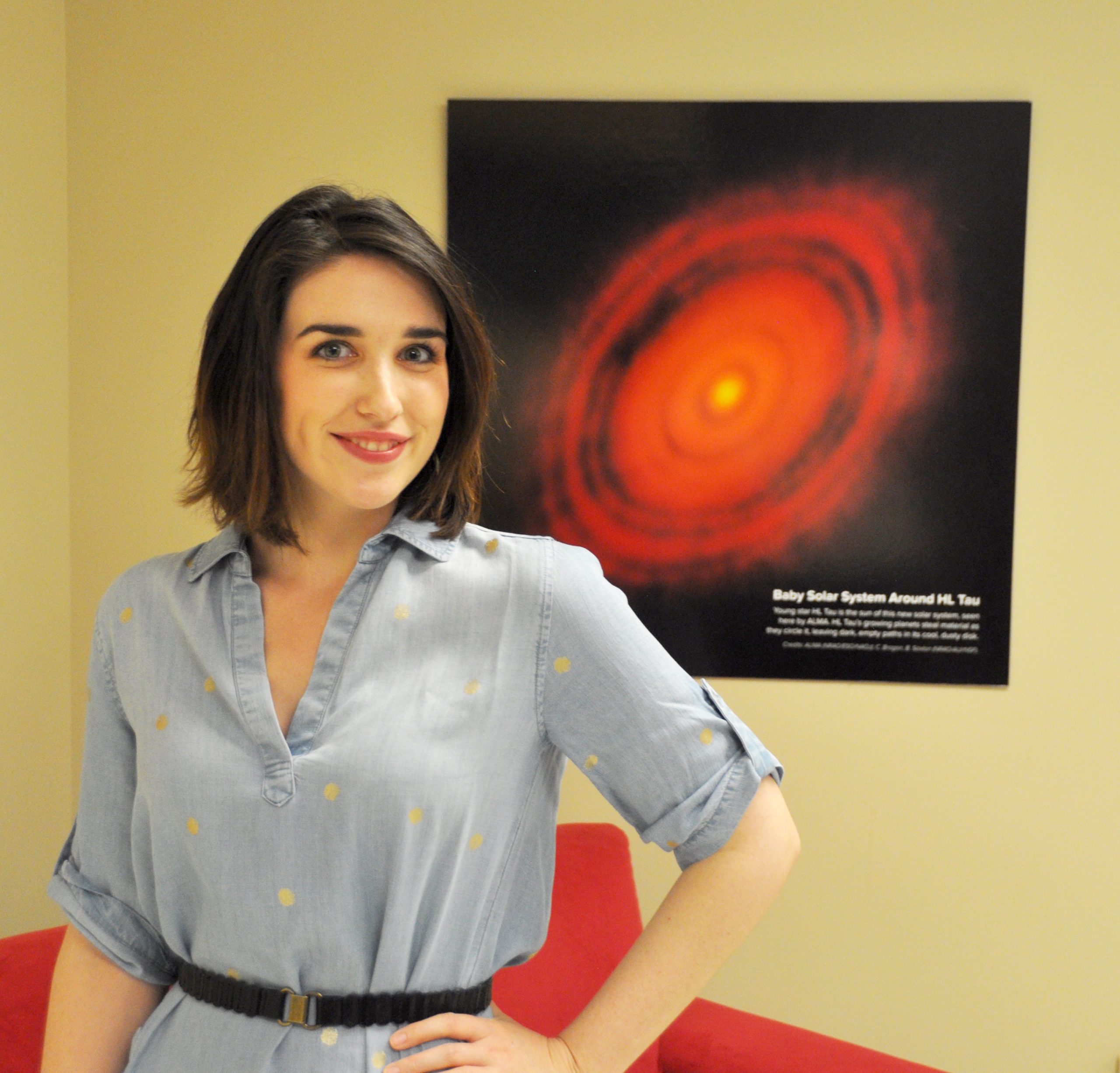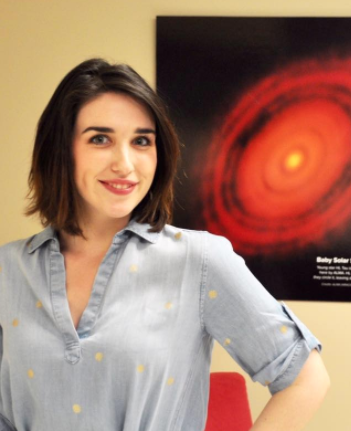
Rebecca Charbonneau talks about her research into the history of the Space Race and scientific collaboration during the Cold War.
Radio technology played a huge role in the Space Race and there was a lot of collaboration between the US and the Soviet Union. Scientists wanted to work with each other even in the 1960s. It is important to remind ourselves of the human connections maintained in times of war.
Rebecca Charbonneau
The spectre of the Cold War loomed over Rebecca Charbonneau’s childhood. Growing up in a Cuban American family in Miami, it was something she was aware of from an early age. “I didn’t know anyone whose family had not been affected by it,” she says.
Living in Florida she was also very aware of space exploration and had visited the Kennedy Space Centre at Cape Canaveral. She dreamt of being an astronaut. She would lie on her mother’s truck in her backyard in Miami and use her telescope to look at the stars. She read Carl Sagan and watched Star Trek. “Space and astronomy caught my imagination. There was a kind of spiritual quality to it for me,” she says.
It is fitting therefore that her PhD in the History and Philosophy of Science, which she will begin in the autumn, will look at the history of the Space Race. But Rebecca’s path to studying the history of science was not a linear one. When she left school, where she also excelled in art, Rebecca enrolled at Mount Holyoke College, majoring in astronomy.
However, things didn’t go as planned. For health reasons she had to drop out and when she recovered several months later she was keen to study nearer to home. She transferred to Rollins College, a liberal arts college in Central Florida, but they didn’t have an astronomy programme. Rebecca thought her dream of space was over.
From art history to history of science
Gradually Rebecca [2018] started doing research in art history. Growing up she had loved to read popular science books. At one point her mother gave her some money to buy a book and she purchased Galileo’s Middle Finger, which explores the relationship between science and social justice. While on a research trip to Florence she went to a museum and saw Galileo’s telescope. “It was a lightning bolt moment,” says Rebecca. “I knew I had to study the history of science.”
She looked for “sneaky ways” to introduce science into her research. For instance, she studied portraiture in South Africa and how 19th century British armchair anthropologists made assumptions about people based on photos. “It was racist pseudo science and I was interested in how it influenced cultural perceptions of race and biology,” says Rebecca.
She travelled a lot during her degree and one of the museums she visited was the Pitt Rivers Museum in Oxford. She instantly fell in love with Oxford and applied to do her master’s in the History of Science, Medicine and Technology there.
For her dissertation she studied international science collaboration in the Cold War, especially that between US and Soviet astrophysicists.
NASA
Her master’s was followed by a year at NASA's History Office and the National Radio Astronomy Observatory which helped to develop her knowledge of space history and allowed her time to work on her Russian.
Over the year she has met many of the older scientists who remembered the Space Race during the Cold War. “It was amazing listening to their stories,” she says. “Some of the people remembered things in a different way to what the documents said. Sometimes they just remembered wrongly, but hearing personal narrative enriched my understanding.”
Rebecca, who is a NASA Solar System Ambassador, spent the first half of her year at the History Office at NASA HQ in Washington DC where she helped to research historical questions related to NASA's history.
She is now working in the National Radio Astronomy Observatory's archives and is helping to transcribe oral history accounts from radio astronomers around the world. She says it gives her a head start on her PhD which will address the history of the Space Race. At the same time she has been a guest lecturer on a Science in Society class at the University of Virginia.
Rebecca has already published some of her research – she had a paper published in NASA's History Quarterly journal and an article on the British astronomer Caroline Herschel published in the American Astronomical Society Newsletter. At NRAO, she is helping her supervisor, Ken Kellerman, edit a book on the history of NRAO. She has also given a presentation at the European Space Agency's Space History Conference in Italy where she won "best paper for an ongoing project".
Rebecca chose Cambridge for her PhD in part because of its Nobel Prize-winning role in radio astronomy, the study of celestial objects that give off radio waves. She says: “My PhD will look at how scientists collaborated in the field of radio astronomy. Radio technology played a huge role in the Space Race and there was a lot of collaboration between the US and the Soviet Union. Scientists wanted to work with each other even in the 1960s. It is important to remind ourselves of the human connections maintained in times of war. Interferometry techniques in radio astronomy require distance, anything between metres and continents, between the antennae, making international collaboration important. For scientific reasons there was a desire to work together to get the best results. It was driven by science.”
She adds: “So many things about the space race are applicable to today’s environment so it is important to question the myths around it if we want to make policy that is based on history.”

Rebecca Charbonneau
- Alumni
- United States
- 2018 PhD History and Philosophy of Science
- Christ's College
Previous Education
Rollins College
Oxford University












